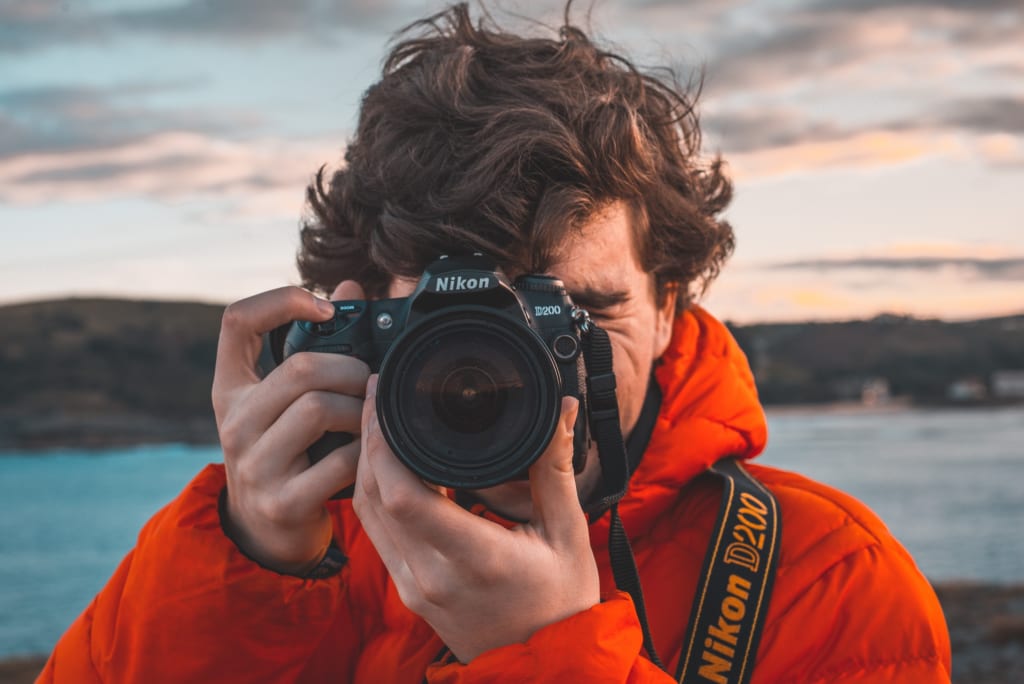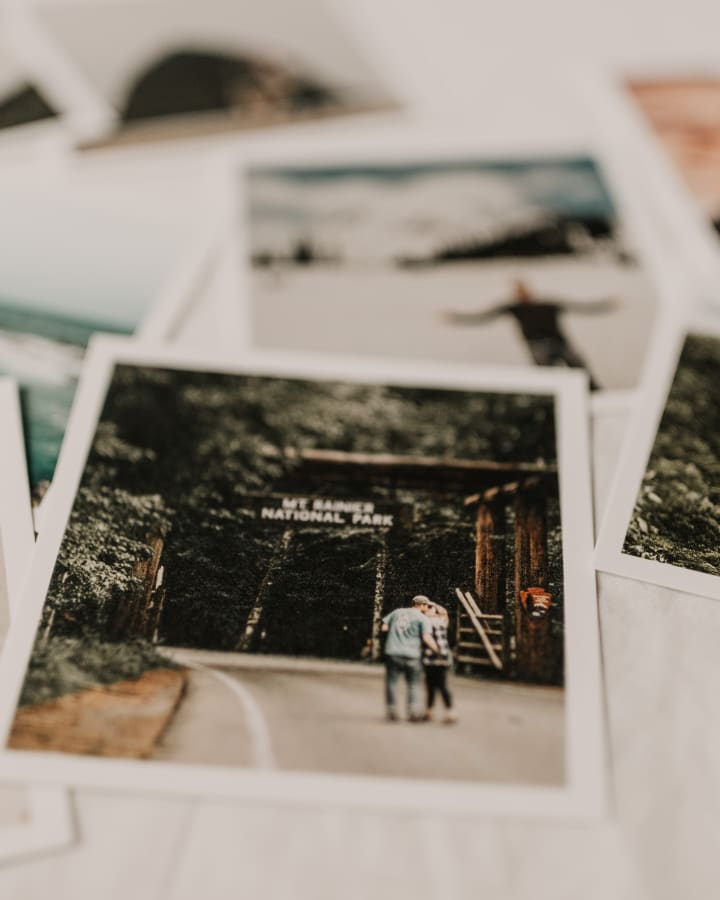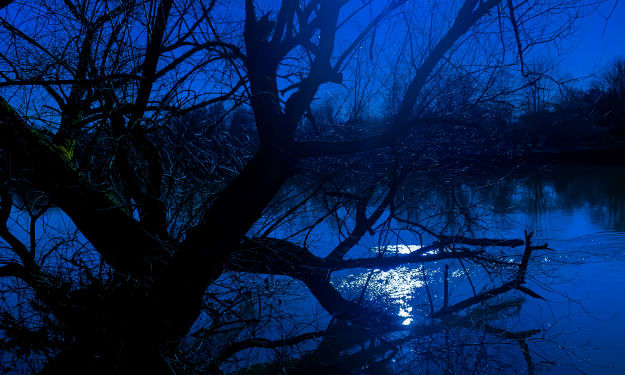10 Signs You're Working with an Amateur Photographer
Are you a model who's worried you agreed to TFP with a GWC? If you're working with an amateur photographer, these signs will ring true.

It all seemed to go well at first. You linked up with a guy who had a photography business card. He asked if you do TFP, and you do. As a model, you need shots for your portfolio. You agreed to do a shoot, but then, things started to get a little weird.
Before you know it, the shoot turned out to be a flop for one reason or another. The shots that were taken weren't good. Maybe he got too grabby, or he just didn't really seem to have his work together the way a professional photographer would.
Though all photographers need to start somewhere, most models would agree that working with an amateur photographer for free is a waste of time. As a model, I can tell you that it can happen to the best of us—especially freelancers.
Worried you're selling your services for cheap? Watch out for these signs that the "pro" who wants you to work for free is just a random Guy With A Camera.
Anyone who has been on a set will tell you that the camera a photographer uses is one of the most obvious red flags. The camera your photographer uses speaks volumes about what their level is.
If you're working with a professional photographer, they will want to use a DSLR or a film camera, if they're artsy. If you're working with an amateur photographer, they'll use one of those cheap point-and-shoots.
Part of the reason why amateur photographers are okay with using cheap cameras is because they don't need to control the focus of the lens with them. They are easy to use—ergo, a perfect choice for a casual user.
DSLRs give you more control over the photo you take, but require practice and understanding. That level of control is what makes you capable of taking better shots. However, the skill required (and the price tag) would make an amateur balk.
They have no portfolio to offer you.
If this isn't a red flag to models, I don't know what is. Models know the importance of a portfolio and all the different types of photographs every model should have in their portfolio. No professional photographer will ever be without a portfolio of his work to show. Your portfolio is how you attract business as a photographer, after all.
This is one of those few "black and white" warning signs that shows you're not dealing with a pro under any means. I mean, could you imagine claiming to be a professional wedding photographer without having a portfolio?
You don't have to be a full time photographer to have a port. Heck, even the most lackadaisical part time shooters will have one. Even engaged couples know this!
The moment clients hear that you don't have a portfolio of your work, they'll assume that you never really shot a wedding and leave.
Amateur photographers aren't really that into technique, and don't really think about what kind of effects light will have. This leads to photo results that are less than stellar.
Why? Because lighting is everything.
You will never see a pro photographer who is not at least partially obsessed with lighting. It's all lighting, lighting, lighting with them. Seriously, just talk to one and you'll see what I mean.
Professional photographers will play with lights, invest in lighting equipment, plan out shoots based on the way the natural light looks, and also obsess over lighting.
A quick search shows they have a bad reputation among models.
Photography is one of those industries that's cutthroat by design. It's a flooded market that involves a lot of networking. This means that word gets out about bad photographers in the industry, especially if you hang out with a lot of models.
If you have friends who are in the industry, ask them about a photographer's legitimacy before you shoot with them. If they mention an unprofessional attitude, chances are that you're working with a predator or an amateur.
Ask around. There are a lot of modeling mistakes everyone makes at least once, but forgetting to ask about the reputation of a photographer doesn't need to be one of them.
They don't really plan out shoots.

Before you do your next shoot, tear out a page of Vogue. Take a look at the photos that they use. Aren't they beautiful? Well, a lot of planning went into that shot!
Professional photographers realize how much planning goes into an amazing shot. They know it takes hair and makeup, composition, as well as an overall concept that they are trying to capture.
When you're working with an amateur photographer, they'll shoot from the hip. They will take a million random shots and hope that one looks hot, period.
Everything about the shoot is sexualized.
This is one of the things models hate about photographers.There are a lot of misconceptions about erotic photographers that need to be set straight. The most common myth that's pushed by both predators masquerading as pros and amateur photographers is the way models get booked for these kinds of shoots.
Due to the nature of nude and erotic photography, professionals in this field always pay their models unless the model is the one paying them. There's no TFP here, period.
Moreover, if it's a porn shoot, professionals will explain EVERYTHING that the model is expected to do prior to the shoot and will ask for STD panels. There's no bait-and-switch allowed in adult modeling, nor is there any question about STD test results.
If your photographer is trying to push for sexual poses, is acting like a creep, or is trying to ask for TFP for an erotic shoot, he's not a professional. At best, you're working with an amateur photographer trying to get laid. At worst, you're dealing with a sexual predator.
When you do see his portfolio, the shots are awful.

Remember when I said that you can judge a lot about a person's skill from the portfolios they have? You better believe that's true. Though it's not always common to see, there are some amateur photographers who do offer up portfolios.
A bad portfolio is indicative of a photographer you don't want to work with—professional or otherwise. Amateurs, on average, tend to have terrible ports.
I really want to emphasize how bad working with amateurs can be. When you're working with an amateur photographer, you need to remember that you could end up being hurt by appearing in his portfolio later on.
They are all over the place when it comes to their business.
A professional photographer is an organized photographer. They know where all their shots are stored. They have all their gear in place. They can set up and tear down their equipment as if they were born with it. Above all, they will show up on time.
Amateurs don't have that kind of gusto in them. They're usually a mess. They'll be late, their marketing will suck, they will forget key pieces of equipment, and oh, they will also be running around like a chicken with its head cut off.
If this sounds frustrating, it should be. Pros wouldn't tolerate that. There's a reason they're amateurs and not professionals, after all.
They don't really have an "end game" with the photos they take.

Most professional photographers do TFP with an end game in mind. They don't shoot willy-nilly. Their time is pricey and they are selective with who they work with.
They may do it to expand their portfolio, to work with models that have bigger names in the biz, to network, or to test out new techniques. Some may also do it as an editorial submission.
Amateurs don't care who they shoot with, nor do they have a plan in mind for the photos they do take. Trust me when I say that it shows more than you'd expect it to.
You're pretty sure they don't actually make money from this.
Let's be honest. The difference between an amateur and professional photographer is their wages. When you're working with an amateur photographer, they will often mention their "day job," but that doesn't mean they're not pros.
Believe it or not, a lot of professional photographers work a 9 to 5 that doesn't always include shooting. It's a hard field to break into, after all. However, there's still a lot to be said about being paid as a photographer.
Amateurs don't get paid—and if they do, they may make a couple hundred bucks a year. Professionals, on the other hand, will see a sizable chunk of their income based on their shots.
Makes sense, all things considered.
About the Creator
Ossiana Tepfenhart
Ossiana Tepfenhart is a writer based out of New Jersey. This is her work account. She loves gifts and tips, so if you like something, tip her!






Comments
There are no comments for this story
Be the first to respond and start the conversation.